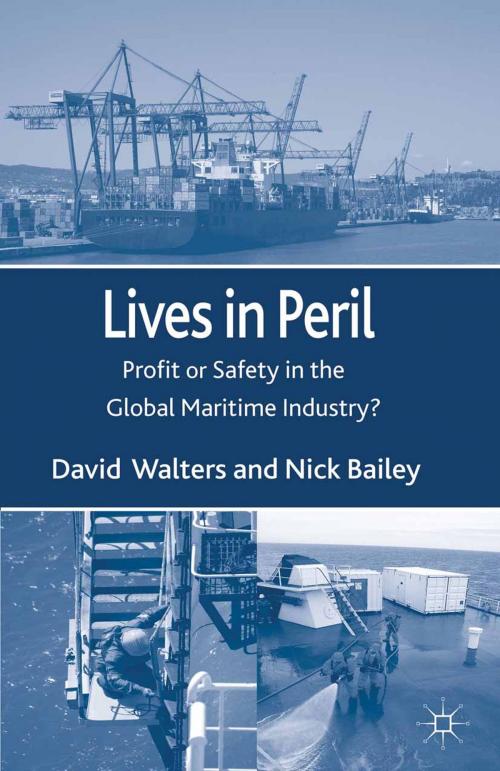Lives in Peril
Profit or Safety in the Global Maritime Industry?
Nonfiction, Science & Nature, Technology, Power Resources, Business & Finance, Economics, International Economics| Author: | D. Walters, N. Bailey | ISBN: | 9781137357298 |
| Publisher: | Palgrave Macmillan UK | Publication: | September 30, 2013 |
| Imprint: | Palgrave Macmillan | Language: | English |
| Author: | D. Walters, N. Bailey |
| ISBN: | 9781137357298 |
| Publisher: | Palgrave Macmillan UK |
| Publication: | September 30, 2013 |
| Imprint: | Palgrave Macmillan |
| Language: | English |
Lives in Peril demonstrates how and why seafarers are a vulnerable group of workers. It argues they are made so by the organisation and structure of their employment; the prioritisation of profit over safety by the actors that engage and control their labour; the limits of enforcement of the regulatory framework that is in place to protect them; and by their weakness as collective actors in relation to capital. The consequences of this vulnerability are seen in data on their occupationally-related morbidity and mortality - evidence that probably only represents a partial picture of the actual extent of the physical, mental and emotional harm resulting from work at sea. This volume's central argument is that this situation is likely to remain broadly unchanged as long as global maritime governance and regulation remains in thrall to the neo-liberal economic and political arguments that drive globalisation, and fails to enforce regulatory standards more robustly.
Lives in Peril demonstrates how and why seafarers are a vulnerable group of workers. It argues they are made so by the organisation and structure of their employment; the prioritisation of profit over safety by the actors that engage and control their labour; the limits of enforcement of the regulatory framework that is in place to protect them; and by their weakness as collective actors in relation to capital. The consequences of this vulnerability are seen in data on their occupationally-related morbidity and mortality - evidence that probably only represents a partial picture of the actual extent of the physical, mental and emotional harm resulting from work at sea. This volume's central argument is that this situation is likely to remain broadly unchanged as long as global maritime governance and regulation remains in thrall to the neo-liberal economic and political arguments that drive globalisation, and fails to enforce regulatory standards more robustly.















